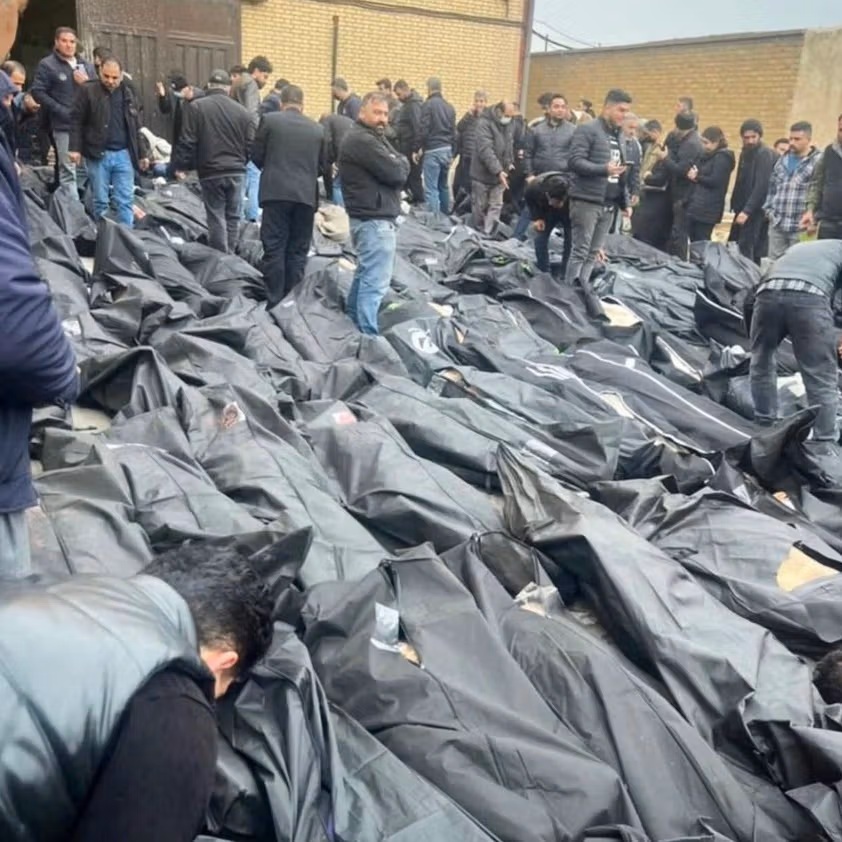
Despite being allies and “brotherly countries,” Azerbaijan and Turkey do not necessarily share the same geopolitical interests. Nowhere is that more evident than in the Middle East, where Baku acts as a reliable partner of Israel. At the same time, Turkey attempts to position itself as a “protector” of the Palestinian people.
By Nikola Mikovic
Azerbaijan – a Shia-majority Muslim nation of around 10 million people – is considered one of the closest Muslim countries to the Jewish State. One reason for this could be that religion does not play a significant role in the political life of the South Caucasus state.
Azerbaijan is possibly the most secular of Muslim countries. In contrast to Turkey, which has seen increased Islamization under President Recep Tayyip Erdogan, Azerbaijan has maintained and even strengthened the secular character of its society.
Despite that, in December 1991, Azerbaijan joined the Organization of Islamic Cooperation (OIC), and to this day, it preserves good ties with the intergovernmental organisation. However, unlike in other Muslim-majority nations, there is very little domestic pressure within Azerbaijan to adopt a more rigid stance against Israel.
It is no secret that the Jewish State provided significant military assistance to Azerbaijan during the Second Karabakh War, the energy-rich county fought against Armenia over Nagorno-Karabakh. Also, over the years, Baku has developed strong energy ties with Israel, supplying it with oil via Turkish territory.
Although Turkey, as a transit country, undoubtedly benefits from such a business, some political groups in Istanbul have recently held a rally protesting against Azerbaijani energy cooperation with Israel. The rally was most likely a message to Baku to change its stance regarding the war in Gaza and adopt Ankara’s approach instead.
But what is the Turkish official policy on Israel’s actions in Gaza?
Rhetorically, Ankara strongly supports the Palestinian cause and accuses Israel of committing genocide against the Palestinian people. Practically, Turkey still maintains diplomatic relations with the Jewish State and is unlikely to withdraw its 1949 recognition of Israel, regardless of the situation in the Gaza Strip.
That, however, does not prevent Ankara from indirectly pressuring Azerbaijan to reconsider its economic cooperation with Tel Aviv. But Baku, despite having close military, economic, cultural, and political ties with Turkey, is unlikely to change its Israeli policy.
Azerbaijan and Turkey might be “one nation, two states”, but the South Caucasus has its own geopolitical goals. It has repeatedly shown that it aims to pursue distinct foreign policy. For instance, unlike Ankara, Baku follows the principle of territorial integrity in international relations.
It never recognised the Ankara-backed self-proclaimed Turkish Republic of Northern Cyprus or the unilaterally declared independence of Kosovo, which both Turkey and most Western nations backed. Azerbaijan, unlike Turkey, did not support the resolution on Srebrenica at the United Nations General Assembly in May 2024.
Therefore, if Turkey was unable to pressure its ally on these matters, it is unlikely to succeed in forcing Azerbaijan to adopt a new policy regarding Israel.
In contrast to Ankara, Baku does not have a history of close relations with Arab countries. Also, its trade with major Arab nations, including those in the Gulf region, remains relatively small. For instance, in 2021, the trade volume between Azerbaijan and all Arab countries totalled $801.6 million. That year, Azerbaijan's exports to Israel reached $898 million.
However, what Azerbaijan and most Arab states have in common is a potential rival – Iran. That is why, in the foreseeable future, Baku will likely seek to establish closer economic and political ties with significant actors in the Middle East while preserving its partnership with Israel.
It has already taken some steps in that direction. In 2022, Azerbaijani energy officials and the United Arab Emirates Masdar Corporation signed a Memorandum of Understanding on cooperation in renewable and clean energy in Nagorno-Karabakh. In June this year, Masdar and Azerbaijan’s State Oil Company (SOCAR) signed a shareholder agreement for three wind and solar projects totalling one gigawatt.
For now, energy is the significant driver of Baku’s cooperation with the Arab world. Regarding Palestine, Azerbaijan seems to implement a balanced foreign policy. On the one hand, it acknowledges Palestine and maintains a Palestinian embassy.
Also, Baku has actively endorsed the two-state solution and, since the outbreak of the conflict, has supported UN resolutions advocating for ceasefires in Gaza. On the other hand, it does not intend to halt its military and economic ties with Israel, regardless of alleged pressure from Turkey.
Given that other Turkic post-Soviet countries, such as Kazakhstan and Uzbekistan, are not particularly vocal about the conflict in Gaza either, it is not very probable that Ankara will sacrifice its alliance with Azerbaijan for the sake of Palestine. Instead, Turkey will likely accept the energy-rich nation’s position vis-à-vis Israel, not allowing it to have a serious impact on its relations with Baku.






